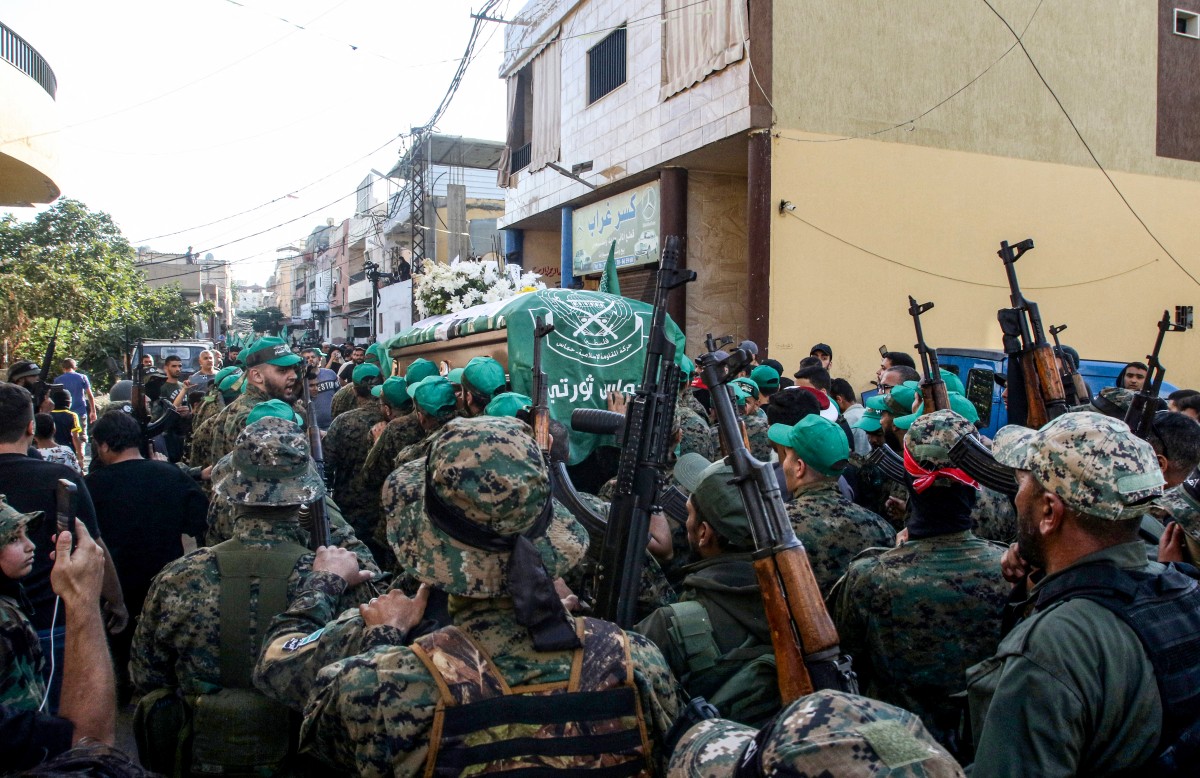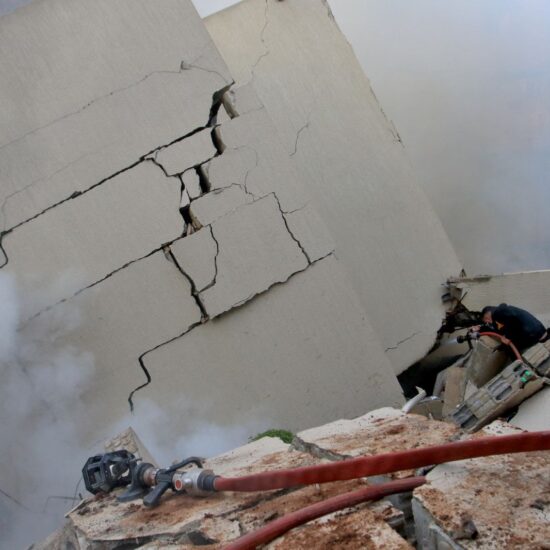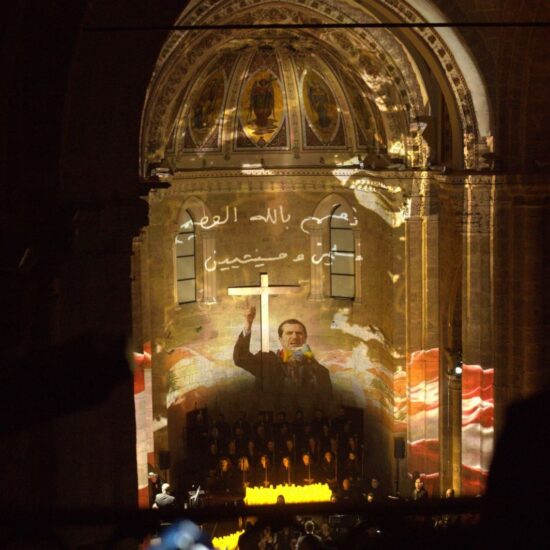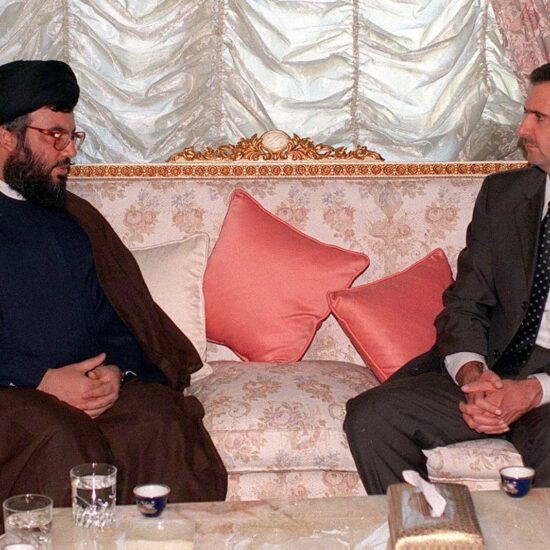
Yesterday, Hamas’s Lebanon branch announced the formation of a new battalion called “Al-Aqsa Flood Vanguards”. As of yet, the seriousness of this initiative has not become apparent, but to dismiss it in light of the carnage happening in Gaza as another facet of resistance against Israel misses a certain political and historical context which continues to plague Lebanon. What Israel is committing in Gaza, by the testmony of the United Nations, is a genocide. However, this does not mean that threats to Lebanon’s sovereignty should be ignored as part of a broad romanticization of certain political actors, nor should we allow Lebanon to become a warzone, or even worse a platform for Iran and its various proxies.
The Palestinian Liberation Organization (PLO) moved to Jordan after the defeat of 1967 and Israel’s occupation of the West Bank and Gaza. The PLO then stepped up its military attacks on Israeli forces stationed in the occupied territories. This made the PLO extremely popular within Jordan, 70% of whose population is of Palestinian origin. By 1970, certain elements within the PLO began calling for the overthrow of King Hussein and the Hashemite monarchy. The breaking point was the Dawson’s Field plane hijackings, and this led King Hussein to launch a military campaign that led to the PLO’s expulsion to Lebanon.
Subsequently, the PLO began launching attacks against Israel from South Lebanon, specifically from the region of ‘Arqub, which became known as Fatah Land. Increasing attacks led to massive Israeli retaliation, especially when the Lebanese government found itself unable to curb the fedayeen attacks. The Coastal Road attack by Fatah was used as a casus belli by Israel to invade Lebanon up to the Litani river in March 1978, to establish a “security buffer zone” to curb further Palestinian attacks on Israel. Lebanese sovereignty, therefore, was violated by militias and by the Israeli occupation forces, both which wreaked havoc on Lebanon.
Why does this matter? Lebanese sovereignty ended when Lebanon acquiesced Gamal Abdel Nasser’s Cairo Agreement in 1969, which allowed Palestinian militants to operate from Southern Lebanon. Since then, Lebanon has been completely devoid of political agency, be it to Palestinian, Syrian, and Israeli politicking and armed presence in our country. The normalization of this near-daily violation of our country has become so entrenched that many nascent movements cannot even conceive of Lebanon as a state where the rule of law is the norm, and the army is the sole armed force responsible for war and peace decisions, as well protecting the country.
Currently, the military and political reality in Lebanon is shaped by Hezbollah. Having consolidated its iron grip as the most powerful military force in the country, it has destroyed any semblance of state autonomy in nearly every major area of policy. Hezbollah exercises total control in Southern Lebanon and Beirut’s Dahye neighborhood, which only serves to undermine the state and its institutions. In the midst of this political polarization, another non-state militia will only serve to undermine the integrity of our borders, while reinforcing a culture of anarchy and statelessness which in no way contributes to easing the weight of the genocide.
After the announcement, many Hamas and resistance supporters expressed joy. Ever since October 7 and the carnage on Gaza began, the pro-resistance camp has been endorsing everything Hamas, Hezbollah, and the Houthis did. Some of them have also been engaged in behavior and rhetoric which demonizes the segment of the population which believes in keeping Lebanon out of the war, regardless of their political orientation. Such sentiments are understandable in light of the horrors in Gaza, but they unwittingly call for war without any idea of how to protect a failed country with a socially and economically vulnerable population.
On the other side, the isolationist far-right, which continuously calls for the partition of Lebanon along sectarian lines, has increased its vitriol against Palestinians. This camp has emphasized its lack of sympathy with the Palestinians, claiming that “Lebanon is their only cause”. This stems from the trauma of the civil war and the hysteria produced by racist rhetoric against the presence of Syrian refugees in Lebanon. Some radicals have gone so far as to explicitly call for the mass expulsion of all Palestinians, without really specifying how this might result in “stability” in South Lebanon and protection from war.
The ”change” camp in Lebanese politics, mostly center-left activist groups, has failed to produce a firm stance in response to the spread of demonizing rhetoric and proliferation of armed militias in the war. This camp already displays an aversion to the discourse of sovereignty and autonomy, due to its supposed adoption by the far right. This aversion, however, is harmful: the public space is being monopolized by irrational radicals on both sides of the national debate, and the “change” camp should either take initiative and counter this mass hysteria or risk paying a heavy price in the political and social arenas.
People might say that, practically, Hamas’s founding of this “battalion” will not amount to any concrete change in the status quo in the South, which is in the hands of Hezbollah. However, attention should be paid. The erosion of the country’s sovereignty did not start yesterday, but is the result of a decades-long process enacted by self-serving political actors to entrench their political power and to initiate networks of patronage with foreign countries, often countries which do not have a healthy interest in Lebanon and often seek to use Lebanon as a playground for their geopolitical expansion into the Levant.
The Lebanese people should realize that, in their quest to build a state-assuming that they wish to do so-, they have to restrict the ability to exercise violence to the Lebanese army and security apparatus, which are legal institutions that can be held accountable (and in check) by a process of governmental oversight. Any compromise on this matter would mean the irreversible destruction of the Lebanese while deepening the divide between the different segments of Lebanese society, or to the detriment to the idea of a healthy and functional Lebanese state.








